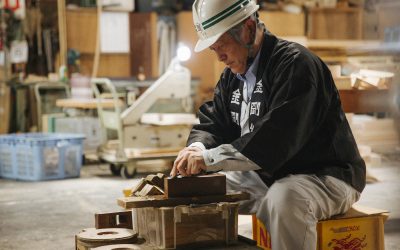I have spent over 30 years in technology companies, as a partner, executive, or investor. I have been fortunate to witness the greatest technological disruption in human history, one that has brought unimaginable advances to humanity in just a few decades, leaving the Industrial Revolution relegated to second place.
However, amidst all this transformation, ironically inherited from the Industrial Revolution, we now face an unprecedented social and environmental challenge that threatens the very survival of humanity. Global warming, combined with rising inequality, creates a volatile mix that is destabilizing human progress.
At the beginning of the 21st century, the scientific and innovation communities were quite optimistic about the impending technological revolution, especially with disruptive technologies like AI (artificial intelligence), 3D printing, nanotechnology, biotechnology, robotics, and more. They dreamed of a world where these technologies would ease human life, provide equal opportunities, and solve many environmental problems. But in reality, this “golden dream” has fallen into the hands of a class of so-called business leaders who use it to enrich themselves at the expense of others, with little regard for the social or environmental impact that poorly applied technology can cause. Instead of helping the nearly 70% of the world’s population without access to basic education and healthcare, these technologies have “captivated” the other 30% with addictive digital systems and services (from social media to online gaming) and have massively replaced jobs to widen profit margins.
Fortunately, there is a new type of intelligence emerging: Grandmother Intelligence (GI), a term I’ve coined to contrast with Artificial Intelligence (AI). This new intelligence is truly concerned about the kind of world we will leave for our children. It represents a class of business leaders with a soul—senior leaders who are redefining success by placing social and environmental impact on equal footing with economic performance.
This is the dawn of a new movement: a purpose-driven economy that uses new technologies as engines for social well-being, rather than selfishly boosting profits at the expense of people or the planet.
As an example, while many business leaders in the hospitality industry are focused on how to automate their processes and cut costs to maximize profits, there are heartwarming examples of soulful entrepreneurs:
- Some choose to hire “grandmothers” as cooks in their restaurants, providing a professional outlet for a group often suffering from loneliness and low pensions, while offering wholesome, home-cooked meals. Undoubtedly, this is a socially impactful business.
- Another entrepreneur in the dairy sector employs 100% of their workforce with disabled individuals, offering professional opportunities to a highly vulnerable group.
More and more business leaders embodying Grandmother Intelligence are fighting for social justice, using their talent and companies to serve humanity. I hope this new GI triumphs over technological AI, or we may regret it for centuries to come.
“We begin to age when we stop learning” – Japanese proverb.
Davos 2026: plenty of diagnosis, few decisions
The annual World Economic Forum meeting once again brought together political leaders, CEOs and major investors in Davos, against a backdrop defined by three clear tensions: economic slowdown, an...
Just one year later: the lasting footprint of the solidarity ultramarathon in Anantapur
-By Montserrat López It has been exactly one year since our trip to India. A journey that does not end when you land back home. Its impact still reverberates. It continues. Exactly one year ago, we...
Takumi: when craftsmanship becomes business excellence with soul
In Japan, there is a word that goes far beyond a profession: takumi. It does not refer simply to a skilled craftsperson, but to someone who has devoted decades of their life to perfecting a skill...




